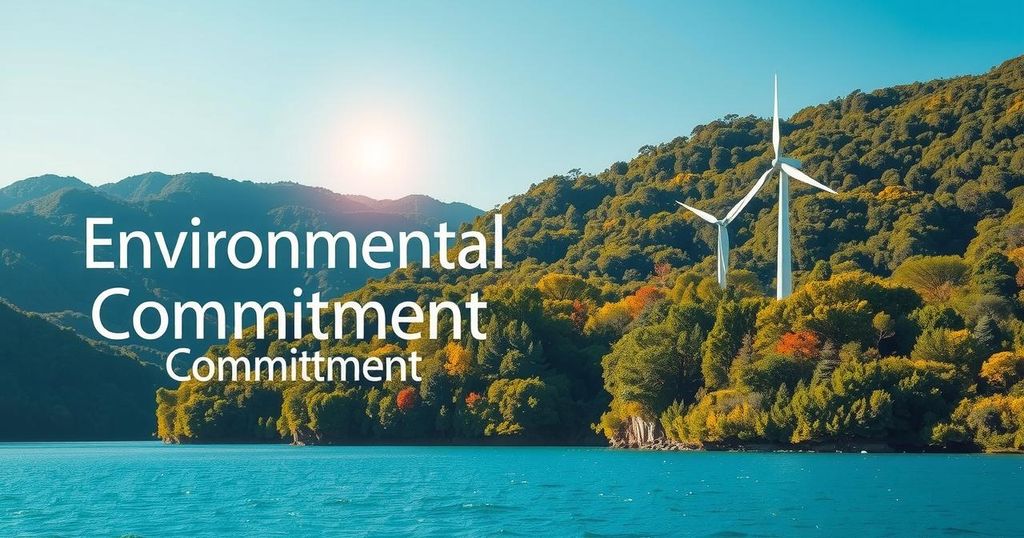Papua New Guinea’s Prime Minister James Marape reaffirmed his commitment to return to UN climate summits, emphasizing the importance of prioritizing forest conservation. After boycotting the recent talks due to a lack of respect shown to forest interests, he aims to advocate for financial accountability from major carbon-emitting nations. The nation, home to significant rainforest resources, highlights the need for a united front in addressing climate challenges, particularly in the context of an ongoing legal case involving polluter accountability.
Papua New Guinea’s Prime Minister James Marape announced his government’s intention to participate in future UN climate summits after boycotting the recent talks in Azerbaijan. He emphasized the critical need to prioritize forest conservation as a central theme in climate discussions moving forward, stating, “Conversations about climate change were totally in vain unless they focused on forest conservation and resource management.” Marape plans to advocate for accountability from nations that contribute significantly to carbon emissions, insisting they should finance efforts to protect forests.
Papua New Guinea holds a significant portion of the world’s third-largest rainforest, often referred to as one of the “lungs of the Earth.” Marape expressed dissatisfaction with the lack of respect shown to forest business owners during the Azerbaijan summit, which fueled their decision to abstain from participation. Furthermore, he signaled support for Australia’s bid to co-host future climate conferences, contingent on a strong focus on forest management in the agenda.
The nation is highly susceptible to climate change impacts due to its geographical vulnerabilities and insufficient resources. Papua New Guinea is among five Pacific nations currently engaged in a landmark International Court of Justice case aiming to hold polluters accountable for their climate obligations. This underscores the urgent need for global accountability in addressing environmental degradation amid rising climate threats. The ongoing selection process for COP31 has been delayed due to Turkey’s opposition to Australia’s hosting bid, prolonging the decision into 2025, while the COP conferences serve as the primary platform for nations to commit to legally binding climate resolutions.
Papua New Guinea, a Pacific island nation, is acknowledged for its extensive tropical rainforests, which play a pivotal role in reducing atmospheric carbon levels. The country’s forestry sector is vital for sustaining its environment and economy, yet it faces challenges due to climate change, natural disaster susceptibility, and external pressures from larger carbon-emitting nations. The UN climate conferences, known as COPs, are critical for facilitating international dialogue on climate obligations, and Papua New Guinea’s participation in these talks is essential for amplifying the voices of smaller nations in global climate discussions. Concurrently, there is a significant push for stricter accountability measures for major polluters, reflecting a growing acknowledgment of climate justice.
In conclusion, Papua New Guinea’s Prime Minister James Marape has reaffirmed his government’s commitment to re-engage in UN climate summits, emphasizing the urgency of forest conservation as a priority in climate discussions. The nation’s unique ecological position underscores the importance of actively participating in the climate dialogue, particularly for vulnerable nations seeking to address the impacts of climate change. Furthermore, the ongoing legal case regarding climate accountability highlights the necessity for powerful nations to take responsibility for their environmental impacts. As they look ahead to future conferences, Papua New Guinea aims to ensure that the focus remains on sustainable management of their invaluable forestry resources. It is a critical step for their survival and the health of the planet.
Original Source: www.france24.com




